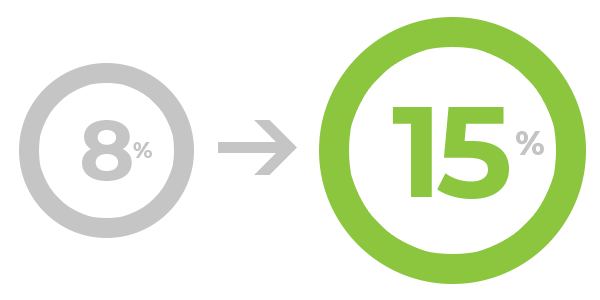Although the significance of an intervention like ours for the women, men, boys, girls and adolescents who live in the rural communities we have reached, goes far beyond the numbers obtained with our research, it is very satisfactory for us. have evidence of how imparting basic health principles through education, and community organization and participation can obtain great results, for example:

Skin to Skin Contact: Increased from 9% to 59%, ensuring a vital bond from birth.

Colostrum Consumption: Increased from 39% to 85%, guaranteeing essential nutrients for newborn babies.

Umbilical Cord Care: Improved from 59% to 78%, preventing infections and promoting healthy healing.

Exclusive Breastfeeding: Increased from 87% to 97% in the first three days of the baby's life, strengthening the newborn's immune system.

Institutional Birth: Increased from 35% to 46%, improving the safety of birth for both mothers and babies.

Early newborn control in health facilities: Increased from 8% to 15%, improving early detection and treatment of possible complications.
Data based on: “Prevalence of essential newborn care in home and facility births in the Peruvian Amazon: analysis of census data from programme evaluation in three remote districts of the Loreto region” by Stefan Reinders, Magaly M. Blas, Melissa Neuman, Luis Huicho, & Carine Ronsmans and “Effect of the Mamás del Río programme on essential newborn care: a three-year before-and-after outcome evaluation of a community-based, maternal and neonatal health intervention in the Peruvian Amazon” by Magaly M. Blas, Stefan Reinders, Angela Alva, Melissa Neuman, Isabelle Lange, Luis Huicho & Carine Ronsmans.
As part of the positive impact generated by Mamás del Río, Mamás de la Frontera was born. Discover more about our expansion and the history of the change we are promoting on the Colombian-Peruvian border.
Learn more about Mamás de la Frontera projectAll Mamas del Río interventions aim to positively influence knowledge and practices related to maternal and child health in the community. That is why educational resources have been designed that integrate the customs, experiences and culture of the communities. This is the case of “Our Stories”, digital narratives made by ACS and mothers from rural communities of Parinari - Loreto using the Photovoice technique. Through these stories they tell us their experiences, challenges and lessons learned about pregnancy and childbirth in their environment.
Juana will be a mother for the first time and has doubts and uncertainties about it. She goes to every medical campaign that comes to her community and looks forward to her baby. Let's hear your story
Rosa is 7 months pregnant and lives her life exactly the same as she did before getting pregnant, her activities and workload are the same. Despite strange signs in her health, she does not go to the hospital. Let's hear your story
Carla is a 16-year-old teenager who is 8 months pregnant. She is going through an event that causes her stress, she has headaches and it is getting worse. Her neighbors and relatives believe that it is due to her fear and tension, they try to help her at home, they take a long time to take her to a health center. Let's hear your story
©2024. Made with (❤︎) in Yachayninchik